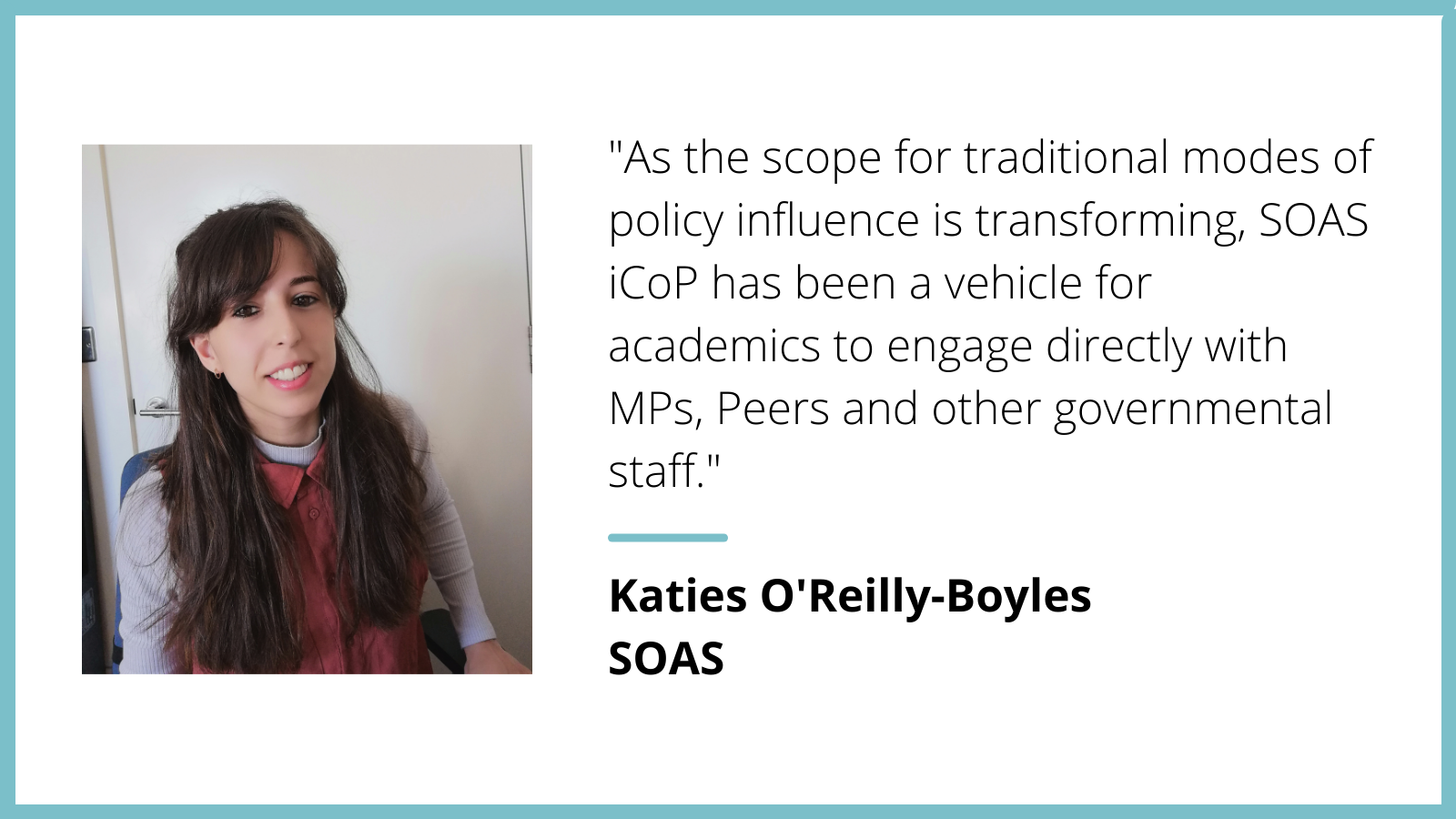Influencing the Corridors of Power: A Direct Vehicle between academic staff and Westminster
Posted 2021-05-11 08:45:03 by Katie O'Reilly-Boyles

Katie examines the importance of having a concise and direct vehicle for policy engagement between SOAS academics and Westminster.
Amidst the tendency of the UK government to use special advisers and commissions to inform their decisions, Britain’s extraordinarily high death toll from Covid-19 has revealed that this is not always the right approach. The rapid rollout of the vaccine by the NHS has shown what can be achieved when our public institutions and experts are empowered.
As the scope for traditional modes of policy influence is transforming, SOAS iCoP has been a vehicle for academics to engage directly with MPs, Peers and other governmental staff. By producing peer-reviewed research from within university systems of governance, iCoP has written and distributed 35 peer-reviewed single-page expert briefings and 5-minute podcasts to policymakers, while serving as a platform to widen academic and public engagement in policymaking.
While briefings range from Universal Basic Income, to the Covert Human Intelligence Bill, and UK Aid after the DFID and FCO merger and more, recent successes have included a briefing on the pro-democracy movement in Myanmar, which contributed to an early-day parliamentary motion and additional signatories . Due to our interdisciplinary and often diplomatically sensitive areas of focus at SOAS, having a group point of distribution and contact - that, at the same time, does not speak on behalf of the whole institution and is therefore able to represent a broad spectrum of academic views - is highly effective for us. It was particularly key for our Myanmar briefing, as revealing individual academic names could have endangered colleagues and partners.
We also believe reaching out to expert voices from other sectors and pursuing collaborative efforts is a way to drive things forward. Eleven of iCoP’s evidence-based briefings have been on Covid-19, and working with the Chair of the Muslim Doctors Association, Dr Hina Shahid, and Labour MP Siobhain McDonagh at the start of the pandemic, we successfully encouraged the government to collect and publish Covid-19 mortality data in relation to ethnicity and to recognise the impact of Covid-19 on faith communities. As the serious impact of the coronavirus on ethnic minorities has since been revealed, we can see how vital this data was.
iCoP is now reaching out to work with, and offer training to, other universities and stakeholders, and we invite fellow academics and students from across and beyond the sector to get in touch with us so that we can help them to get their research into Westminster. For more information you can reach Katie at: ko21@soas.ac.uk.
Katie O'Reilly-Boyles is the Knowledge Exchange and Impact Officer at SOAS, University of London, working with both academic and professional services staff on public and policy engagement activity, as well as several research and enterprise initiatives.










































































































